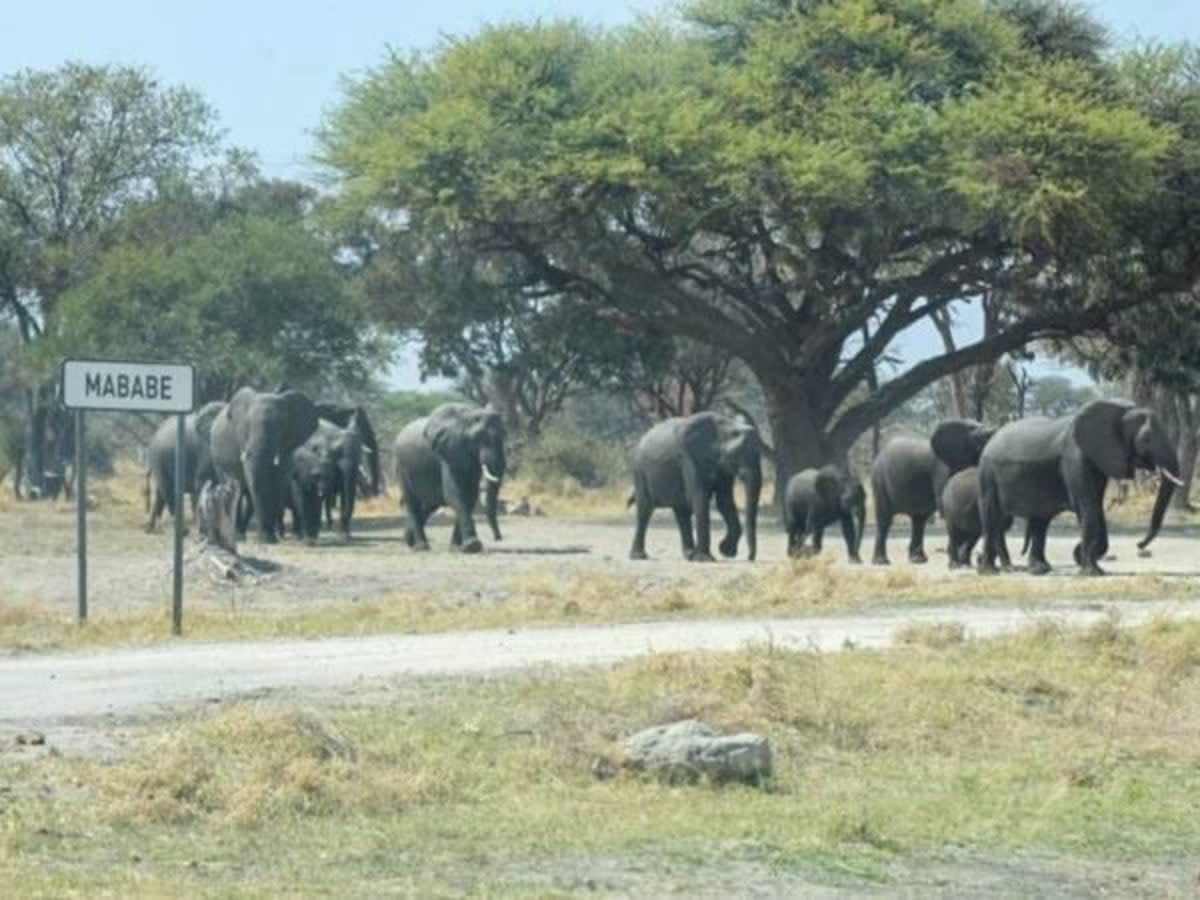Mababe - where people and wildlife live side by side

By Boniface Keakabetse for Okavango Express
Almost a decade ago, when this journalist was still a rookie learning the ropes of telling the stories of human wildlife coexistence in Botswana’s savannas, an interesting incident occurred in Mababe village.
A female school teacher was returning home when she found an uninvited guest taking a nap on her living room sofa. Like a domestic cat, she found a Leopard dozing lazily on her sofa having jumped through the back window. The big cat was only awakened by the door opening and screams of the frightened woman. It jumped out again through the same window disappearing into the dark. No one was hurt.
Mababe, a village of about 300 people is situated about 125 kilometres North East of Maun, the largest town in northern Botswana. The village is located on the banks of Khwai River which is a mainstay of Mababe residents and the abundant wildlife population that their lives depend on.
Mababe Zokotsama Community Development Trust (MZCDT) chairperson Bofeletse Ruthano told the Okavango Express, “Here we are literally living with wildlife. You can open a door at night to find a lion sleeping in front of the house. For us wild animals are like family. We live together. They know us. We know them.”’
However, living with wildlife is not everyone’s cup of tea, according to Ruthano who is one of the women leading conservation work in Botswana.
“Living here means we can’t plough crops or rear livestock like other people in areas without a high density of wildlife. People in other areas abhor wild animals because of the destruction they cause to livelihoods. We have given up on ploughing crops because of the elephants. We can’t rear cattle or goats because that is not allowed in this area by the Government. Besides, it's almost impossible to rear cattle or goats in an area teeming with wildlife like Mababe.”
Therefore, Mababe benefits from Botswana Government’s Community Based Natural Resources (CBNRM) Programme, which aims to achieve wildlife conservation and rural
development. The trust was allocated user rights for NG 41, a tourism concession where they undertake tourism related activities for community employment creation and rural development.
Despite the tourism potential there are concerns of poaching and other related wildlife crimes experienced in the area according to Ruthano. MZCDT has a strong squad of ten community escort guides employed by the trust to undertake wildlife monitoring in the concession.
“Our team of community escort guides has often encountered snares which caught lions and hyenas. It’s possible the snares were put to trap other game and end up trapping lions. We are concerned as the trust about these cases as they could cause wildlife declines.”
Ruthano explained that they regularly undertake community education in collaboration targeting Mababe residents on the importance of conservation.
“We have made it clear to residents that putting snares to trap wild animals is a crime, and the culprits when apprehended would face the law.”
Ruthano added that the trust has embarked on provision of social amenities to the community.
The trust funded water connection to all homes in Mababe and provided BWP 500 (£32) to 31 destitute and orphans in Mababe.
“Our aim as MZCDT is to achieve conservation targets through utilisation of the wildlife
resources in the area. When people benefit from the resources, they see a need to conserve them. Already we are seeing the benefits.
“MZCDT has employed more than 80 people from Mababe which is almost a quarter of the village’s population.”
Trust Manager Vusi Khumalo told The Okavango Express that MZCDT has adopted a new management plan. A 5-star camp will be constructed at Mababe Depression, by their joint venture in the concession, African Field Sports.
“We have not yet finalised the land rental fees between us and AFS. The plan is for the trust to have some shareholding in the lodge. About more than 40 community members will be employed.”
Meanwhile, Khumalo further explained that tourism bookings have begun to improve.
“Our situation is improving with the tourism recovery from Covid-19. Tourists are booking our campsites. These days we can even afford paying our staff at the end of the month.”
Khumalo said they are leveraging on maximising the benefits from tourism by refurbishing their two campsites – Tsaa and Dizhana – to bring them up to standard for tourists visiting the area.
This article is reproduced here as part of the African Conservation Journalism Programme, funded in Angola, Botswana, Mozambique, and Zimbabwe by USAID’s VukaNow: Activity. Implemented by the international conservation organization Space for Giants, it aims to expand the reach of conservation and environmental journalism in Africa, and bring more African voices into the international conservation debate. Written articles from the Mozambican and Angolan cohorts are translated from Portuguese. Broadcast stories remain in the original language.
Read the original story here:
Read the original story here: https://www.okavangoexpress.com/sustainablity-tourism/mababe-village-where-people-and-wildlife-live-side-by-side/

 Yahoo News
Yahoo News 
